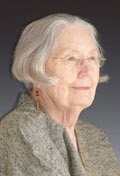Dear Haijin, visitors and travelers,
Last week I published a new episode of our "Ask Jane" feature. That episode was about tanka and the question which I had for Jane was based on a question by Jen of Blog It or Lose It. That question I will reproduce here including the answer of Jane.
0-0-0-0-0-0-0-0-0-0-0-0-0-0-0-0-0-0-0-0-0-0-0-0
Dear
Kristjaan,
I hope you
don't mind my email.
At my
"doves" blog I've been writing a lot of tanka. Mostly sensual / erotic in nature. It's a
form that I really enjoy. After Jane Reichhold mentioned Akiko Yosano's Girl
with Tangled Hai" I started to read that book and have fallen in love with
her writing.Do you think Jane would be able to recommend some additional female
tanka writers? I'd like to learn
more. Would you be able to pass my
message on to her?
I would
appreciate the help, if you have the time.
Jen
++++++++++++++++++++++++++++++++
 |
| Jane Reichhold |
Dear Jen,
I am glad
you are as delighted with Akiko Yosano's tanka as I have been and that you are
following in her footsteps by writing your own erotic and sensual tanka. You
must remember that Yosano's fame rests on the fact that she was able to write
tanka in which she was honest and faithful to her feelings, even when they were
sexual. This was very new in 1902 in Japan. Afterwards other women followed her
example and also then became famous.
I have
translated four of them:
White Letter Poems by Fumi Saito. (a lot is about being a woman in
war and chaos)
Breasts of Snow by Fumiko Nakajo
(about her bouts with breast cancer with great honestly)
Heavenly Maiden Tanka by Akiko Baba (a living tanka writer and how she
navigates modern life)
These are
the four most famous Japanese tanka writers (including Akiko Yosano) of the
1900s.
As you know
The Tale of Genji was written 1000 years ago but still has some of the best
tanka by a Japanese woman!
I did
translate A String of Flowers Untied -Tale of Genji Love Tanka by Murasaki
Shikibu because I love her tanka. Or you can read a translation of The Tale of
Genji although both Seidenstricker and Royal Tyler put the tanka in three lines
(again confused with haiku!).
Another
woman who made a sensation in Japan in the 1980s was Machiko Tawara with her
book Salad Anniversary. Sadly the most available translation, from Kodansha, by
Juliet Carpenter puts the tanka in 3 lines! making them look and sound like
haiku because she confuses the two genres. Jack Stamm did a much better job with
his translation but this too is out of print. For years I sold Jack's book
until there were no more. Good luck finding copies!
Any
translations of female Japanese writers will broaden your view of tanka and
every woman (and everyone!) is
different.
The best
translations of all historical Japanese tanka, male and female is in Alan
Cranston's A Waka Anthology. There are two volumes. The first one is The
Gem-Glistening Cup and the second one I cannot find in my library, but these
books are very expensive. With more time in my library I would find other
translations of older Japanese tanka by both sexes so if you want to compare
you could. Otherwise, just enjoy whatever comes into your hands!
Let me know
if I should dig deeper!
\o/ Jane
+++++++++++++++++++++++++++++
+++++++++++++++++++++++++++++
I hope you did like this Extra episode of "Ask Jane".

Thanks to Jen, Jane and our host for continuing our learning with their guidance.
ReplyDeleteI'm sending a huge "thank you" to you both! To Chevrefeuille for forwarding my question and for all his work here at Carpe Diem. And to you, Jane, for this wonderful response. I am so grateful to you for your guidance and your recommendations. So much to read -- and I am looking forward to it! And -- I am deeply honored by your email -- by your encouragement. Thank you, thank you. :)
ReplyDeleteFascinating - and found only at CDHK. Really your site is great.
ReplyDeleteThanks for the great recommendations. Just found a used copy of Alan Cranston's A Waka Anthology for less than 8 dollars. Also found a copy of Salad Anniversary translated by Jack Stamm. So excited!
ReplyDelete